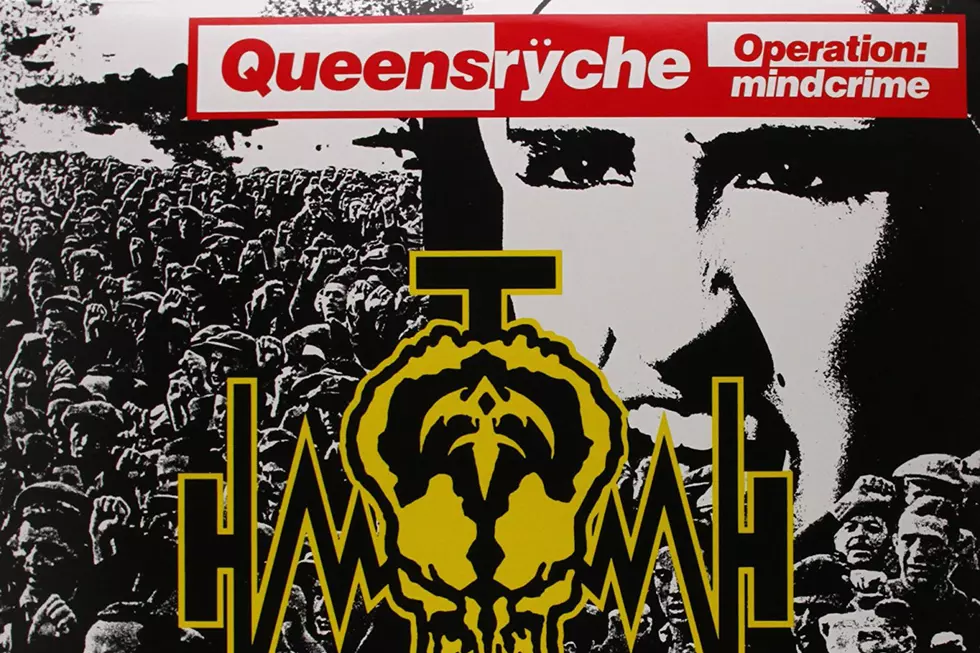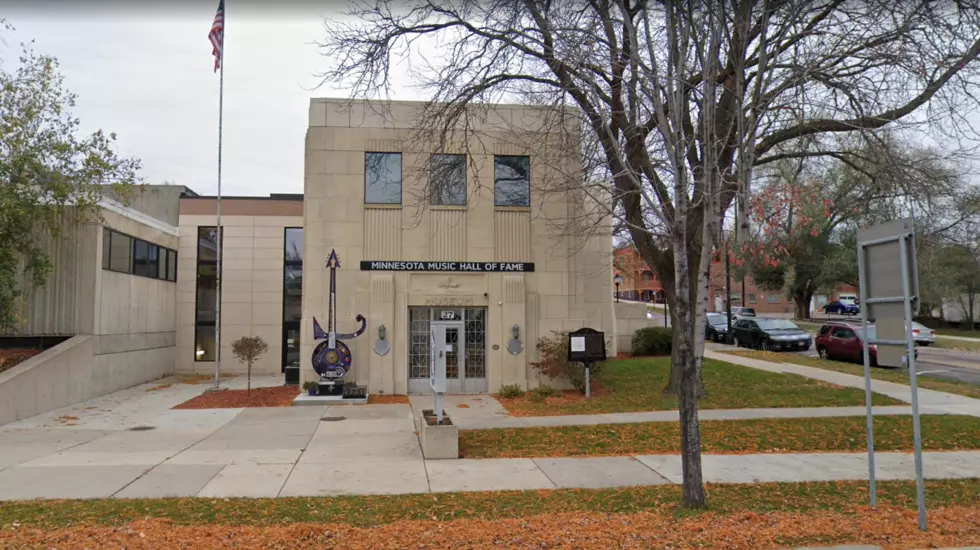
34 Years Ago: Queensryche Release Defining Concept Album ‘Operation: Mindcrime’
Fans and critics were calling Queensrÿche’s music thinking man’s metal long before May 3, 1988 when they released their raison d'être, the heavy metal opera Operation: Mindcrime. The disc, a concept album about governmental corruption, corporate greed and dicey counter-culture revolutionaries, was unprecedented and remains thematically relevant decades after its initial release.
In the third song, “Revolution Calling,” the protagonist, Nikki, sets the stage for the story and cites the need for political action: “Got no love for politicians or that crazy scene in D.C., it’s just a power mad town / But the time is ripe for changes, there's a growing feeling that taking a chance on a new kind of vision is due / I used to trust the media to tell me the truth, tell us the truth / But now I've seen the payoffs everywhere I look / Who do you trust when everyone's a crook?”
Queensyrche, "Revolution Calling"
Operation: Mindcrime was a quantum leap for Queensrÿche, a musical and lyrical development from its excellent 1986 album Rage for Order. The band retained the cinematic intensity of the former, while telling a story involving conspiracy theorists, assassins, drugs, a corrupt priest and several clever plot twists. The album leant itself to a theatrical stage presentation and opened the doors for other bands to experiment with similar structures.
Of course, Queensrÿche were hardly the first rock to tell a complete story with an album, but they were the first popular ‘80s metal band to do so, and they did it with tact and visionary skill. Operation: Mindcrime includes samples, acted segments, operatic swells, and an enduring blend of brash riffage, prog rock rhythms and acoustic arpeggios that augment both the pile driving rockers and heart-on-sleeve ballads. Essentially, Queensrÿche converted the rock opera constructs of The Who, Pink Floyd and Rush into a brash, confrontational framework that appealed to fans of Iron Maiden, Judas Priest and Dio.
Musically, Queensrÿche were in top form on Mindcrime and even managed to weave a hit rock ballad, “I Don’t Believe in Love,” into the same project as bone crushers like the title track, “Spreading the Disease” and “The Needle Lies,” and the more experimental prog-metal or “Suite Sister Mary,” Speak,” and “Electric Requiem.”
Queensryche, "I Don't Believe in Love"
Throughout, the vocals, music and incidental flourishes mesh into a groundbreaking symphony which would have been jaw dropping even without a plot. In future years, friction would develop between operatic, multi-octave singer Geoff Tate, gifted and fluid guitarists Chris DeGarmo and Michael Wilton and acrobatic drummer Scott Rockeneld, but on Operation: Mindcrime the band’s chemistry perfectly matches its musical abilities. The project is ambitious and dramatic, but the music isn’t overly indulgent and the playing fits the needs of the songs, not the egos of the artists.
As innovative as Operation: Mindcrime remains, it wasn’t an immediate success, debuting at number 50 on the Billboard album chart and taking a full year to go gold at a time when many commercial metal bands were going multi-platinum. Operation: Mindcrime finally went platinum in 1991 after Queensrÿche performed the record front-to-back on tour to promote their 1990 album Empire.
Eighteen years after the release of Operation: Mindcrime Queensrÿche put out the sequel Operation: Mindcrime II. Unfortunately, DeGarmo didn’t contribute to the album and the music failed to enthrall or even meet the expectations of most fans, even with Ronnie James Dio playing the role of the evil Dr. X on tour. Queensrÿche played Operation: Mindcrime and Mindcrime II one after the other. Both included actors, video screens and lots of sonic firepower, which kept fans attention for the entire show event though most came for the first act.
Loudwire contributor Jon Wiederhorn is the author of Raising Hell: Backstage Tales From the Lives of Metal Legends, co-author of Louder Than Hell: The Definitive Oral History of Metal, as well as the co-author of Scott Ian’s autobiography, I’m the Man: The Story of That Guy From Anthrax, and Al Jourgensen’s autobiography, Ministry: The Lost Gospels According to Al Jourgensen and the Agnostic Front book My Riot! Grit, Guts and Glory.
Queensryche, "Eyes of a Stranger"
Queensryche Albums Ranked
More From KYBB-FM / B102.7










